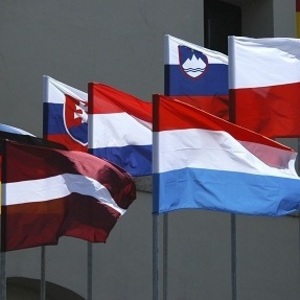EBB: Duties on Argentine, Indonesian biodiesel must be higher

October 3, 2013
BY The European Biodiesel Board
EBB confirms that the EU commission disclosed a proposal for definitive antidumping duties against unfair biodiesel imports from Indonesia and Argentina. The disclosure, which includes a duty proposal, has to be considered as an important move of the EU commission to tackle highly distortive trade practices including differential export taxes (DETs) regimes applied by these two countries.
The EU industry has suffered for years from the growing injury caused in the EU market by the unacceptable, negative impact of such unfair trade practices. Since 2010, Argentina and Indonesia account for more than 90 percent of European biodiesel imports.
Advertisement
Advertisement
The situation is worsening every week: in fact, provisional antidumping duties imposed last May were well below the level needed to stop unfair imports and market sources report that [significant] quantities of Argentine and Indonesian biodiesel have been shipped to the EU during the summer.
The newly proposed levels for definitive antidumping duties are between €215 and €250 ($292 and $340) per ton for biodiesel imported from Argentina, and between €120 and €180 ($163 to $245) per ton for biodiesel imported from Indonesia.
EBB considers that such duty levels should still be higher in order to cover the full dumping margin identified by the commission for exporters from the two countries. Our industry strongly believes that in cases where trade distortions are so egregious and where raw material distortion are involved, the commission, as it has proposed in its recent communication on the modernization of trade instruments, should abandon the so called “lesser duty rule.” The EU is today the only WTO member to apply systematically this rule according to which duties can be set at a lower level than the dumping margin in case a lower duty is considered sufficient to eliminate injury.
Advertisement
Advertisement
In practical terms, this would generate the necessary increase in the proposed import duty up to a level where present unfair practices would be fully corrected.
In this case, definitive duties will have to be decided upon by the end of November “by accomplishing a further final move to definitive duties including the full dumping margin of Indonesian and Argentinean biodiesel producers, European institutions have the opportunity in the next weeks to send a strong signal against unfair biodiesel trade and the very strong distortive effects of DETs in international trade,” insisted Raffaello Garofalo, EBB secretary general.
Related Stories
The U.S. Department of Commerce has disbanded an advisory committee that provided the agency with private sector advice aimed at boosting the competitiveness of U.S. renewable energy and energy efficiency exports, including ethanol and wood pellets.
Iowa’s Renewable Fuels Infrastructure Program on March 25 awarded nearly $3 million in grants to support the addition of E15 at 111 retail sites. The program also awarded grants to support two biodiesel infrastructure projects.
Effective April 1, Illinois’ biodiesel blend requirements have increased from B14 to B17. The increase was implemented via a bipartisan bill passed in 2022, according to the Iowa Soybean Association.
Agriculture Secretary Brooke Rollins on March 31 visited Elite Octane LLC, a 155 MMgy ethanol plant in Atlantic, Iowa, to announce the USDA will release $537 million in obligated funding under the Higher Blends Infrastructure Incentive Program.
The U.S. EPA on March 24 asked the U.S. District Court for the District of Columbia to dismiss a lawsuit filed by biofuel groups last year regarding the agency’s failure to meet the statutory deadline to promulgate 2026 RFS RVOs.
Upcoming Events










